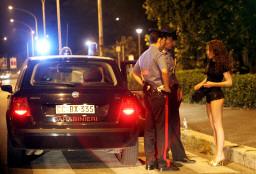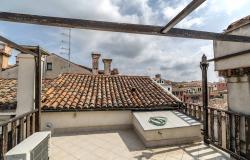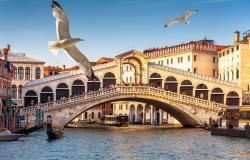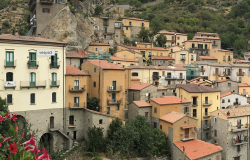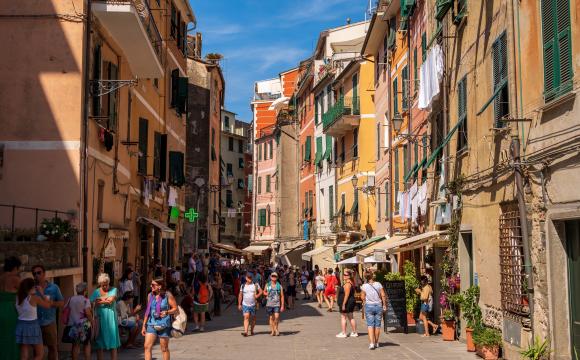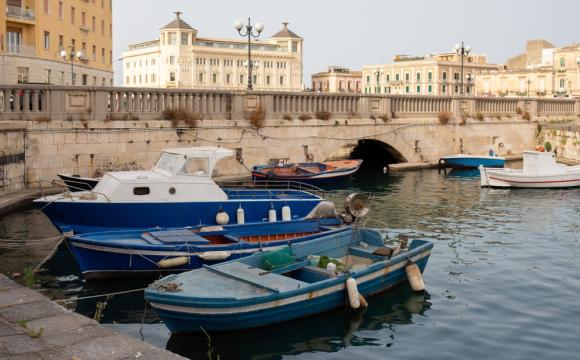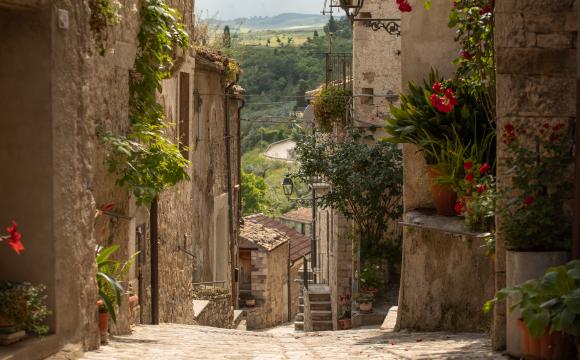After clearing prostitutes from its streets, Verona is planning the country's first crack-down on sex workers who operate in private apartments, Mayor Flavio Tosi said Monday.
The right-wing Northern League mayor said residents will be asked to report people causing ''disturbances'' in their apartment blocks, who will then be slapped with a heavy fine.
''We have moved them off the streets, but now we want to hit the prostitutes - and there are many - who work from home,'' said Tosi, who has been battling against prostitution in the city for almost two years.
Under current Italian law only the exploitation of prostitution - pimping - is illegal in Italy, but city mayors combat the phenomenon through the use of fines, often via traffic or public decency laws.
Verona and Padua were the first Italian cities to introduce an experimental scheme in 2007 cracking down on clients and introducing fines of 50 euros, which resulted in prostitutes demonstrating against the measure in the streets and offering anyone slapped with a fine a ''free service''.
Last summer the two cities also led the way in introducing more effective fines of 500 euros for clients caught with streetwalkers, thanks to greater powers given to city mayors as part of the centre-right government's emergency security decree.
Although the maxi-fines have helped clear city streets across the country, Tosi stressed that mayors' powers are still limited.
''Until there is a national law that governs the phenomenon of prostitution, city councils can only try to minimize the problem by using the few tools available to them,'' he said.
''These are stop-gap measures that certainly do not resolve the problem of prostitution, but we we hope they serve to make the phenomenon less irksome for citizens''.
Rita Sanlorenzo, secretary of a magistrate's organisation, expressed concerns over Tosi's plans to fine prostitutes working in private houses, meanwhile.
''Tosi wants to put a stop to an activity that is not banned by law,'' she said.
''Mayors have a general power to supervise public welfare, but if Tosi's ordinance is aimed (specifically) at prostitutes, it strikes me as illegal and unequal treatment,'' she said.
NEW BILL COULD CRIMINALISE STREET PROSTITUTION.
The government is currently mulling plans to criminalise street prostitution, and in September the cabinet gave a first green light to a new bill.
If passed, the bill will hit both sex workers and clients with fines ranging from 200 to 3,000 euros and jail terms of between five and 15 days.
It also foresees harsher penalties for clients who have sex with minors and the repatriation of teenagers without family in Italy who are caught prostituting themselves.
Critics have slammed the bill, saying that clearing the streets will simply force the sex trade further underground, where they will be less accessible to both police and social workers.
Prostitutes' Rights Committee spokesperson Carla Corso said at the time that the bill would make sex workers ''more invisible and at the mercy of traffickers''.
''The traffickers will take the women off the streets but they will set them to work in apartments, buying up old buildings in the suburbs, and they will do so with the government's good wishes,'' she said.
''This bill gives traffickers a licence to exploit women - it's like reopening the brothels but without any regulation''.
NINE MILLION CLIENTS IN ITALY.
According to a study carried out before the increase in mayors' powers last summer, there were some 100,000 prostitutes in Italy, 65% of whom worked on the streets and 35% in private residences or clubs.
Most prostitutes were said to be foreigners, from some 60 different countries, 20% were minors and 10% were forced into prostitution by criminal gangs.
The study also calculated that prostitutes in Italy charge an average of 30 euros per customer and generate a turnover in the neighborhood of some 90 million euros a month.
Clients were said to number around nine million with 80% seeking unprotected sex.
